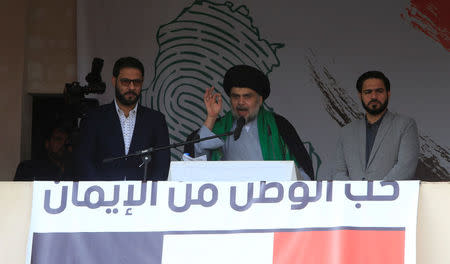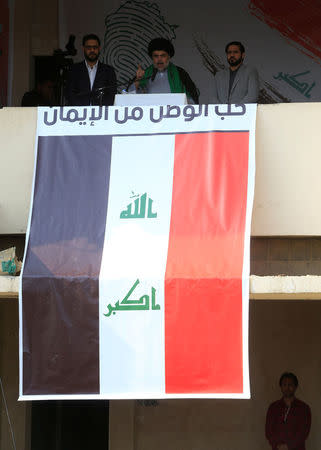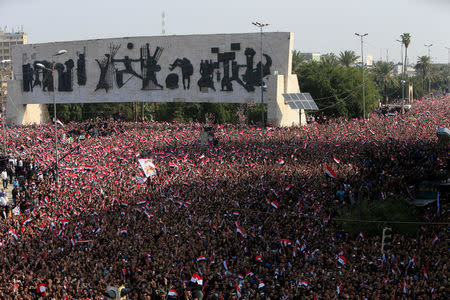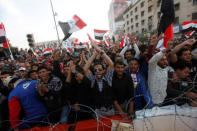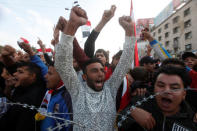Shi'ite cleric Sadr says only Iraq's military should hold land seized from IS
By Ahmed Rasheed BAGHDAD (Reuters) - Influential Shi'ite Muslim cleric Moqtada al-Sadr said on Friday that only Iraq's military should hold territory recaptured from Islamic State, an apparent sign of concern that rival militias might use the gains to expand their influence. "It is necessary to support the Iraqi army and security forces to complete their victories in the usurped areas," Sadr told thousands of supporters at a rally in Baghdad. "They should be the only ones that hold ground after liberating it - no others, whether the occupier, foreign forces or others," he said. The ongoing U.S.-backed offensive to recapture the northern city of Mosul, Islamic State's last major stronghold in Iraq, involves a force of 100,000 Iraqi troops, Kurdish and Shi'ite fighters. The Shi'ite paramilitary groups, which include rivals of Sadr's own militia, have played a key role in encircling the extremist group in areas around predominantly-Sunni Mosul. There was no immediate reaction from Kurdish officials and other Shi'ite militia leaders. Some Sunni officials fear the Shi'ite groups will aim to hold territory in the region as the battle against Islamic State winds down, raising sectarian tension. Sadr's fears are more political, analysts say - he is concerned about rival Shi'ite militias gaining strength by taking ground in the north. Sadr's Saraya al-Islam, or Peace Brigades, are only deployed in and around the northern city of Samarra where the shrine of a holy Shi'ite Imam is located. Baghdad-based political analyst Ahmed Younis said Sadr's speech was a clear message to Shi'ite rivals. "It's quite a clear message for other Shi'ite armed groups not to take on the role of government forces and control lands under the pretext of fighting Daesh (Islamic State). Moqtada is trying to draw a line in the sand for his rivals," he said. Sadr's supporters in their tens of thousands waved Iraqi flags and chanted support for their leader as he spoke. Sadr, whose opinion holds sway over tens of thousands of Shi'ites, including fighters who battled U.S. troops in 2006-7, also threatened to boycott upcoming parliamentary elections, accusing Iraq's Election Commission of bias toward some parties. He is calling for a new commission and a review of the current election law, saying it allows influential parties to maintain their grip on power. (Reporting by Ahmed Rasheed; writing by John Davison; editing by Richard Lough)

 Yahoo News
Yahoo News 